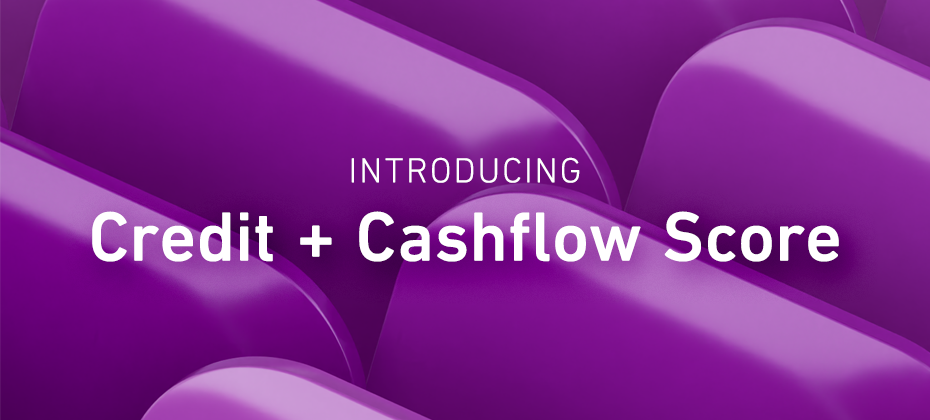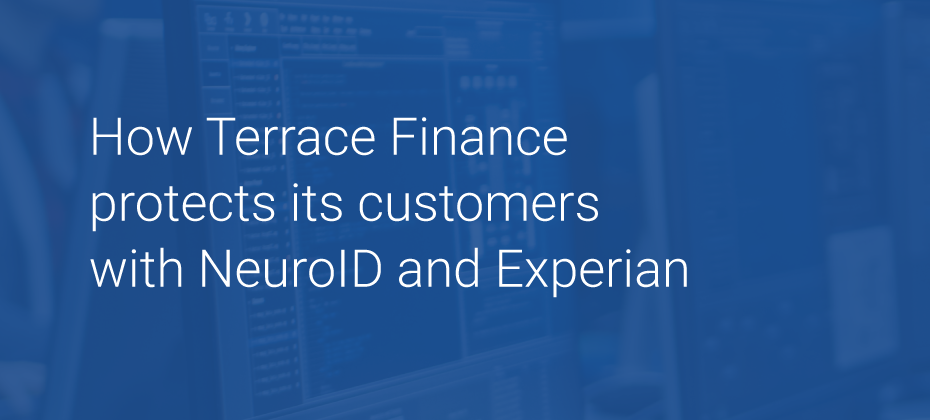In today’s digital lending landscape, fraudsters are more sophisticated, coordinated, and relentless than ever. For companies like Terrace Finance — a specialty finance platform connecting over 5,000 merchants, consumers, and lenders — effectively staying ahead of these threats is a major competitive advantage.
That is why Terrace Finance partnered with NeuroID, a part of Experian, to bring behavioral analytics into their fraud prevention strategy. It has given Terrace’s team a proactive, real-time defense that is transforming how they detect and respond to attacks — potentially stopping fraud before it ever reaches their lending partners.
The challenge: Sophisticated fraud in a high-stakes ecosystem
Terrace Finance operates in a complex environment, offering financing across a wide range of industries and credit profiles. With applications flowing in from countless channels, the risk of fraud is ever-present. A single fraudulent transaction can damage lender relationships or even cut off financing access for entire merchant groups.
According to CEO Andy Hopkins, protecting its partners is a top priority for Terrace:“We know that each individual fraud attack can be very costly for merchants, and some merchants will get shut off from their lending partners because fraud was let through ... It is necessary in this business to keep fraud at a tolerable level, with the ultimate goal to eliminate it entirely.”
Prior to NeuroID, Terrace was confident in its ability to validate submitted data. But with concerns about GenAI-powered fraud growing, including the threat of next-generation fraud bots, Terrace sought out a solution that could provide visibility into how data was being entered and detect risk before applications are submitted.
The solution: Behavioral analytics from NeuroID via Experian
After integrating NeuroID through Experian’s orchestration platform, Terrace gained access to real-time behavioral signals that detected fraud before data was even submitted. Just hours after Terrace turned NeuroID on, behavioral signals revealed a major attack in progress — NeuroID enabled Terrace to respond faster than ever and reduce risk immediately.
“Going live was my most nerve-wracking day. We knew we would see data that we have never seen before and sure enough, we were right in the middle of an attack,” Hopkins said. “We thought the fraud was a little more generic and a little more spread out. What we found was much more coordinated activities, but this also meant we could bring more surgical solutions to the problem instead of broad strokes.”
Terrace has seen significant results with NeuroID in place, including:
Together, NeuroID and Experian enabled Terrace to build a layered, intelligent fraud defense that adapts in real time.
A partnership built on innovation
Terrace Finance’s success is a testament to what is possible when forward-thinking companies partner with innovative technology providers. With Experian’s fraud analytics and NeuroID’s behavioral intelligence, they have built a fraud prevention strategy that is proactive, precise, and scalable.
And they are not stopping there. Terrace is now working with Experian to explore additional tools and insights across the ecosystem, continuing to refine their fraud defenses and deliver the best possible experience for genuine users.
“We use the analogy of a stream,” Hopkins explained. “Rocks block the flow, and as you remove them, it flows better. But that means smaller rocks are now exposed. We can repeat these improvements until the water flows smoothly.”
Learn more about Terrace Finance and NeuroID
Want more of the story? Read the full case study to explore how behavioral analytics provided immediate and long-term value to Terrace Finance’s innovative fraud prevention strategy.
Read case study


